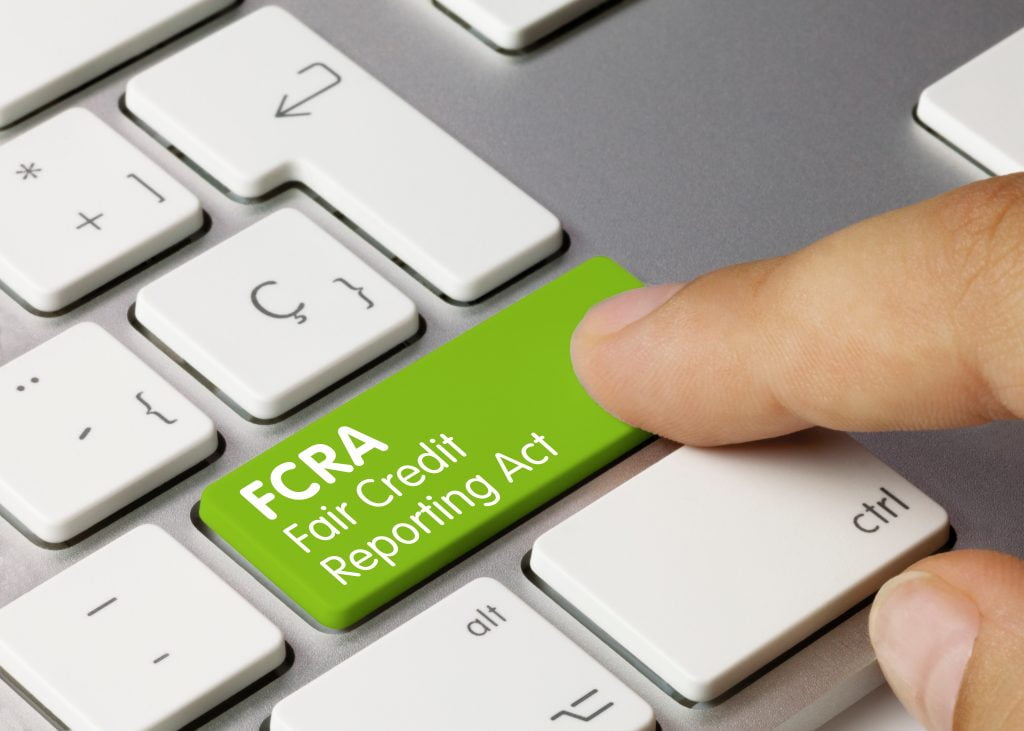
The Fair Credit Reporting Act (FCRA) has been instrumental in regulating background checks and ensuring the protection of consumer information. It is worth examining the benefits of utilizing FCRA-compliant background checks as opposed to non-FCRA background checks. This essay will delve into the significance of the FCRA and explain the advantages of adhering to its guidelines.
The FCRA, enacted in 1970 and subsequently amended, primarily governs the collection, use, and dissemination of consumer information for various purposes, including employment screening. Its main objective is to promote accuracy, fairness, and privacy in credit and background checks. FCRA-compliant background checks are conducted by qualified consumer reporting agencies (CRAs) that strictly adhere to the regulations stipulated by this law. These checks involve obtaining information from reliable sources and ensuring that the process is fair, transparent, and respectful of an individual’s privacy.
One of the significant benefits of FCRA-compliant background checks is that they provide reliable and accurate information about an applicant’s credit history, employment records, criminal background, and other pertinent details. By relying on authorized and verified sources, CRAs are better equipped to furnish employers with comprehensive information regarding a candidate’s suitability for a particular job. This reliability reduces the risk of hiring unsuitable candidates that may lead to increased turnover or liabilities for the company.
Moreover, FCRA-compliant background checks protect individuals’ rights and uphold their privacy. The FCRA mandates that individuals must be informed when their consumer reports are being used for employment purposes, allowing them to review and challenge any potentially inaccurate or misleading information. This crucial provision ensures that every individual is given a fair opportunity to rectify false information and defend their reputation.
In contrast, non-FCRA background checks lack the stringent guidelines and oversight provided by the FCRA. In such cases, employers might resort to unverified sources of information, potentially compromising the accuracy and reliability of the background check. This approach increases the likelihood of inadvertently considering false allegations or outdated data, leading to an unfair evaluation of an applicant’s suitability.
Furthermore, the absence of FCRA compliance may raise concerns about privacy violations. Non-FCRA background checks might not notify individuals about the use of their consumer reports, depriving them of the opportunity to address any inaccuracies or incorrect information. This lack of transparency fosters an environment where personal and often sensitive data may be unfairly utilized without proper consent or knowledge of the individuals involved.
To conclude, FCRA-compliant background checks offer numerous advantages over non-FCRA background checks. By relying on authorized sources and maintaining strict guidelines, FCRA-regulated checks provide accurate and reliable information, minimizing the risk of making ill-informed hiring decisions. Simultaneously, they protect individuals’ rights and privacy by ensuring transparency and offering opportunities to rectify any inaccuracies. It is imperative for employers to recognize the significance of adhering to FCRA guidelines, promoting fairness and integrity when conducting background checks. For more information see Credit reporting requirements (FCRA) | Consumer Financial Protection Bureau (consumerfinance.gov)
